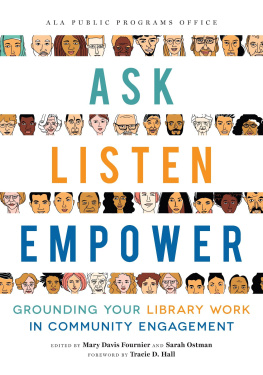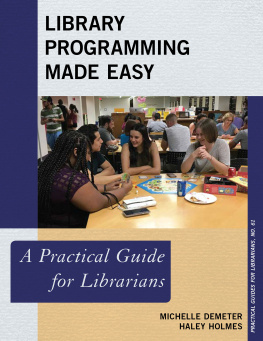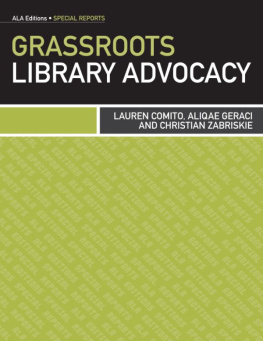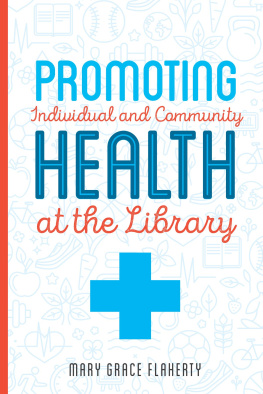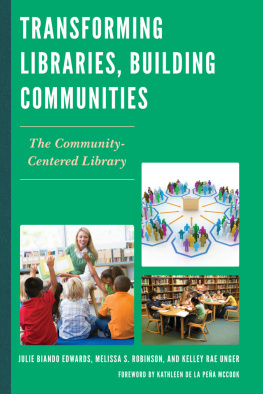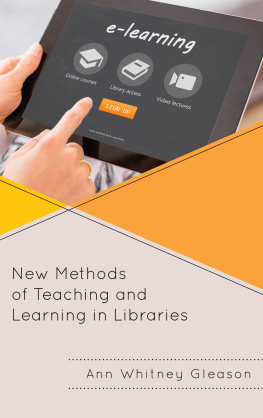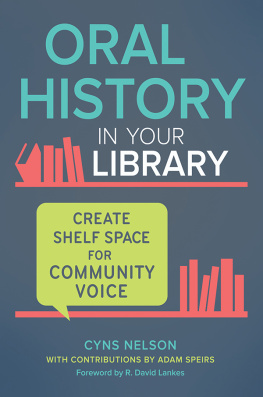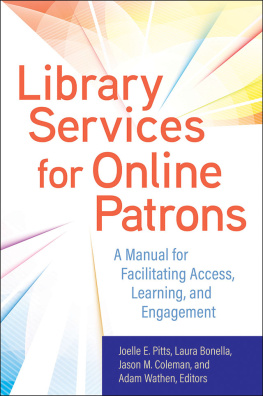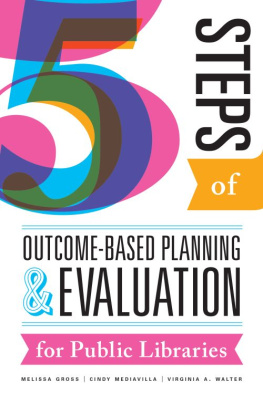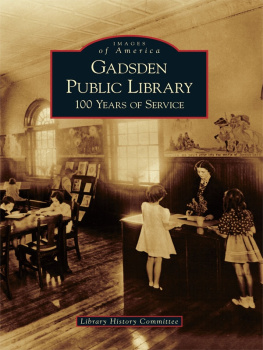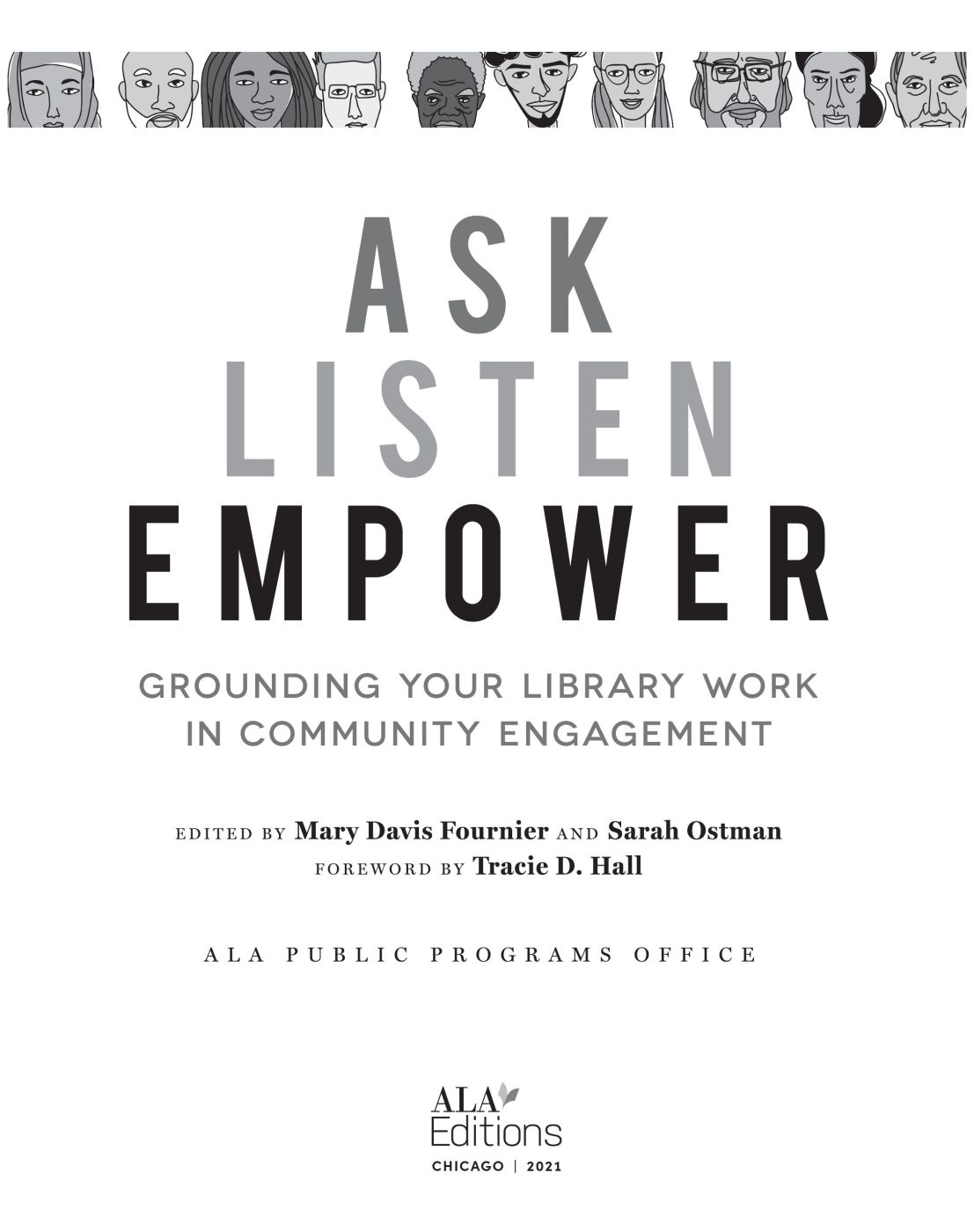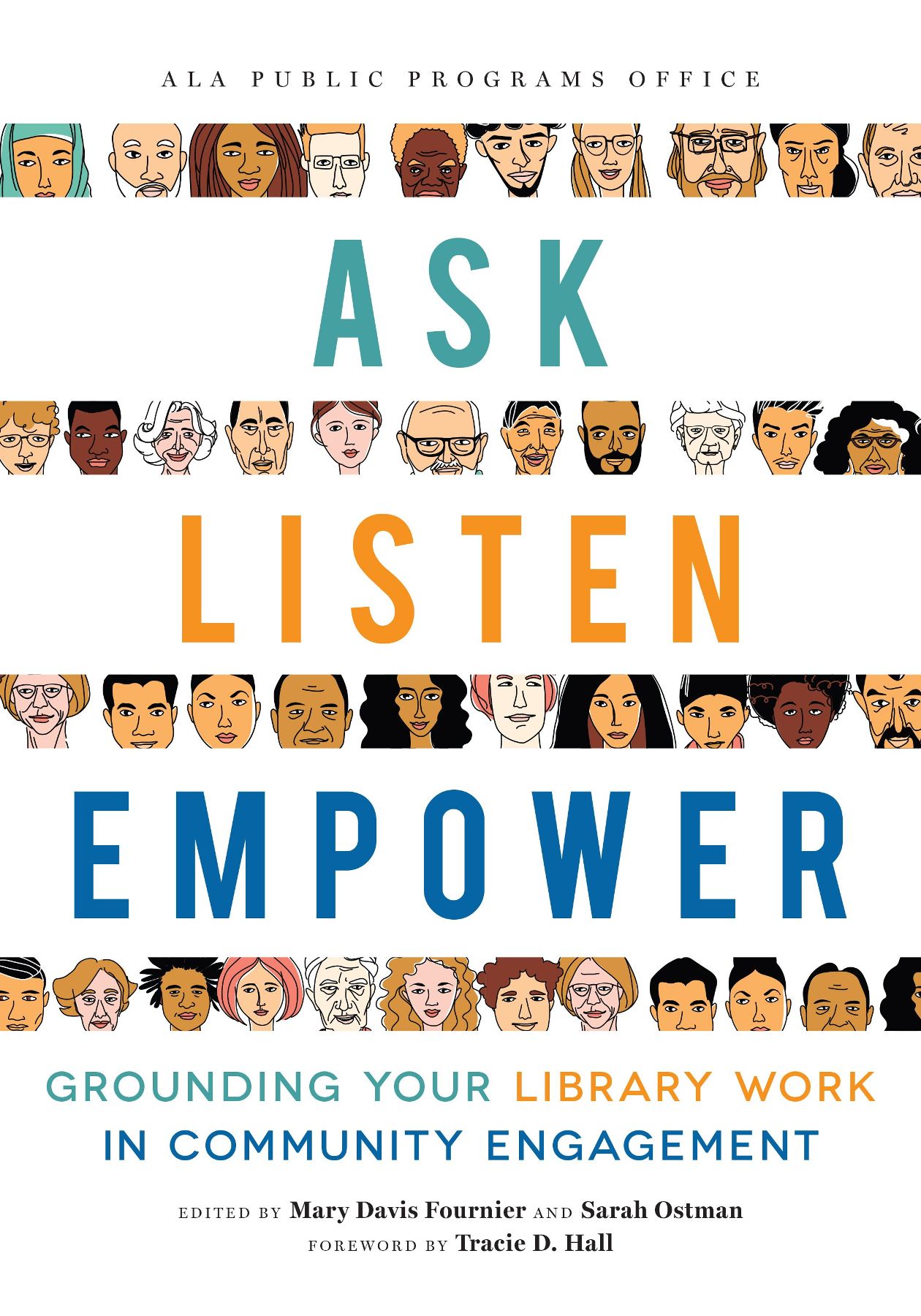
ALA Editions purchases fund advocacy, awareness, and accreditation programs for library professionals worldwide.
MARY DAVIS FOURNIER is the deputy director of the American Library Associations Public Programs Office, where she specializes in institutional partnerships, scaling impact, and new project development for all types of libraries. Fournier has spearheaded dozens of groundbreaking initiatives that have paved the way for innovation in the field, including Libraries Transforming Communities and the National Impact of Library Public Programs Assessment (NILPPA). She has an MEd in education policy studies from the University of Illinois at Urbana-Champaign and a BA in history and English literature from the University of WisconsinMadison.
SARAH OSTMAN is the communications manager for the American Library Associations Public Programs Office, where she serves as editor of ProgrammingLibrarian.org, a web resource for library professionals, and oversees communications for national library programming initiatives including Libraries Transforming Communities. Before joining ALA and the library field in 2014, she spent nearly a decade as a newspaper reporter, editor, and freelance writer. Sarah has an MA in journalism from Columbia College Chicago and a BA in sociology and theater from Smith College.
2021 by Mary Davis Fournier and Sarah Ostman
Extensive effort has gone into ensuring the reliability of the information in this book; however, the publisher makes no warranty, express or implied, with respect to the material contained herein.
ISBNs
978-0-8389-4740-1 (paper)
978-0-8389-4834-7 (PDF)
978-0-8389-4832-3 (ePub)
978-0-8389-4833-0 (Kindle)
Library of Congress Cataloging-in-Publication Data
Names: Fournier, Mary Davis, editor. | Ostman, Sarah, editor.
Title: Ask, listen, empower : grounding your library work in community engagement / edited by Mary Davis Fournier and Sarah Ostman ; foreword by Tracie D. Hall.
Description: Chicago : ALA Editions, 2021. | ALA Public Programs Office. | Includes bibliographical references and index. | Summary: This important resource provides targeted guidance on how libraries can effectively engage with the public to address a range of issues for the betterment of their community, whether it is a city, neighborhood, campus, or something elseProvided by publisher.
Identifiers: LCCN 2020028180 (print) | LCCN 2020028181 (ebook) | ISBN 9780838947401 (paperback) | ISBN 9780838948323 (epub) | ISBN 9780838948347 (pdf) | ISBN 9780838948330 (kindle edition)
Subjects: LCSH: Libraries and communityUnited States. | Libraries and SocietyUnited States.
Classification: LCC Z716.4 .A84 2021 (print) | LCC Z716.4 (ebook) | DDC 021.20973dc23
LC record available at https://lccn.loc.gov/2020028180
LC ebook record available at https://lccn.loc.gov/2020028181
Cover design by Karen Sheets de Gracia.
CONTENTS
NANCY KRANICH
ERICA FREUDENBERGER and SUSAN HILDRETH
HADIYA EVANS
CINDY FESEMYER
CINDY FESEMYER
AUDREY BARBAKOFF
ELLEN KNUTSON and QUANETTA BATTS
ERICA FREUDENBERGER and SUSAN HILDRETH
NANCY KIM PHILLIPS
TASNEEM A. GRACE and ANDREA BLACKMAN
AMBER WILLIAMS
SARAH GOODWIN THIEL
TRACIE D. HALL
In the early 2000s, fresh out of library school, I was hired to run the Albany Branch of the Hartford (Connecticut) Public Library (HPL), located in a culturally rich but economically disinvested community, predominantly inhabited by Black and brown residents, many of them from the Caribbean. Like many institutions serving under-resourced communities, the library worked earnestly to meet the traditional library and layered informatics needs of its constituency despite a limited materials budget, too few staff (we were adjacent to a middle school and within four blocks of both an elementary and a high school), and a building with an aged faade and interior in immediate need of renovation. Children packed the library after school in numbers too overwhelming to facilitate the kind of after-school homework help and programming they deserved. Adults, having long since ceded the library to the children, underutilized it, resulting in its perennially having among the lowest circulation numbers in the system. Rather than the branch being a true asset to the community, the librarys service gaps unintentionally underscored its needs.
It would take the leadership of former Hartford Public Library Chief Louise Blalock (recognized in 2001 as Library Journals Librarian of the Year) and HPL managers like Anwar Ahmad to shake things up and turn things around. They did this mainly by being willing to take risks. One of those risks was on me. I came onto the job with my newly minted MLIS from the University of Washingtons Information School. Though by then Id worked a few years in program roles at the Seattle Public Library and the New Haven Free Public Library, I still leaned heavily on my social work background from my early career days as the director of a youth homeless shelter. Id focused on youth services in my library work and had taken on projects supporting library services for homeless families and children and those living in public housing, youth in foster care, and career development for adults with low literacy. Under Blalock and Ahmads stewardship, HPL had retired the title branch librarian in favor of community librarian. When he recruited and hired me, Ahmad advised that my monthly report should show that my work was being felt as much in the neighborhood as it was within the branchs four walls.
Inspired by this proactive model of librarianship in which we were expected to anticipate and not just respond to residents needs, I worked to become a more effective advocate for my communitysomeone to rally support for their interests and bring attention to their strengths as well as their struggles. I lobbied for resources to improve the appearance and function of the library, created early literacy programs for Head Start and day-care facilities and adult literacy courses, offered multilevel computer classes, and produced cultural programs that reflected the diverse makeup of our residents.
And importantly, I joined and encouraged my staff to join school and community organizations and advisory boards, which helped increase the communitys familiarity with the library. Residents saw that the Albany Branch had skin in the game, that we caredthat we were invested in the future of the entire community and its residents, not just what happened in the building.
Slowly but surely things started to change. Circulation went up, program attendanceimportantly, by adultsclimbed. The look and feel of the branch changed, and we became a point of pride. I remember one of our regular users walking in with a companion and standing in the middle of the floor as they both looked around. When I came over to ask if I could be of assistance, he smiled and answered, No, Ms. Hall. This is my cousin. I just wanted him to see our library.
Our librarythat deeply felt sense of collective ownership is what we had been working for. Sometime after, the Hartford Courant would profile the branchs turnaround in an article it titled A Light Shines on Albany Avenue. A year or so later, when I announced that I was leaving Hartford to lead ALAs Office for Diversity, one of our most devoted library users told me that I had brought a sense of energy to the library that had changed his expectations of what a library could be. It remains one of the greatest compliments Ive ever received.
Next page
